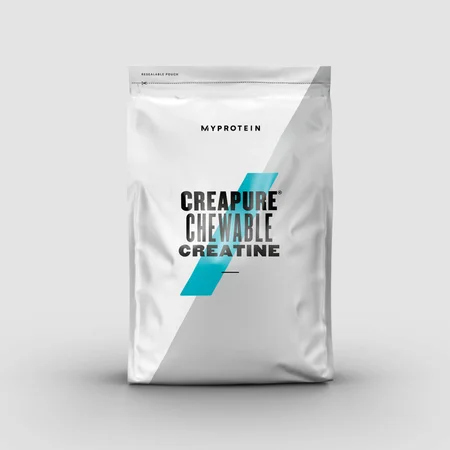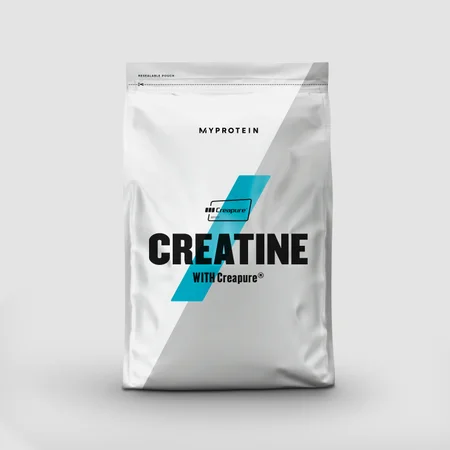
Creatine is one of the most popular supplements for gym-goers looking to add some muscle to their frame. But a lot of gym-goers question when the best time to take creatine actually is, so let's find out the facts.
Creatine
Creatine is also linked to increased body mass during training. Research has shown gains of up to 0.9kg–2.2 kg (2-5lbs) more in athletes who supplement with creatine over a period of several months compared to those who don’t.2
The best time to take creatine is 30 minutes before a workout. It’s also good to include in your recovery shake or post-workout meal, when muscles are growing and rebuilding.1,3
You will find in this article:
- What is creatine?
- Why take creatine?
- Taking creatine before a workout
- Taking creatine after a workout
- Take creatine whenever
- The best way to take creatine
- FAQs
What is Creatine?
Most of the creatine in our bodies is found in skeletal muscle. It plays a crucial role in freeing energy from the cell’s stores for use, and it also helps to rebuild one of the body’s main sources of cellular energy, adenosine triphosphate (ATP). About half of the body’s creatine comes from animal sources in our diet, and the rest is produced by the liver and kidneys.
Why Take Creatine?
Creatine can help increase your performance during short duration and high-intensity exercises — such as heavy lifting and power exercises.
- Increased single and repeated sprint speed
- Increased performance during max effort lifts
- Increased anaerobic threshold
Increased work capacity 5
- Max effort sports like bodybuilding, Olympic weightlifting
- Sprints (track, swim, cycling), Track/Field Events
- Sports with constant movement/running: basketball, field hockey, lacrosse, rugby, soccer, American football
- Ice hockey
- Volleyball
- Skiing
- Tennis
- Combat sports6
Taking Creatine Before a Workout
Because it’s difficult to get all creatine from a natural diet, supplementation is a great way to increase muscle stores. The best way to maximise these stores (if you are supplementing for the first time) is to take creatine (about 5g, or 0.3g/kg body weight) four times a day for five to seven days.

Taking Creatine After a Workout
Taking Creatine on Rest Days
Taking creatine on rest days is a great way to make sure you maintain a high level of it in your muscles. Because we need to replenish creatine, taking it even on rest days can help our muscles prepare for our next workout. Similarly to the loading phase, taking creatine even on days when you aren’t pushing your muscles to the limit can still be beneficial.
Take Creatine Whenever
The Best Way to Take Creatine
is the most common supplement form of creatine. Because it helps with short-term performance, consume creatine 30 minutes before your workout for an immediate impact. Myprotein Creapure tip: Mix the powdered creatine monohydrate with water for quick digestion and availability before a workout.
After an intense training session, it’s best to take creatine with a combination of carbohydrate and/or protein sources to help maximise muscle retention. This makes it the perfect addition to your post-workout recovery shake. Additionally, the benefits of daily creatine supplementation can keep your muscles’ stores maximised, and have other potential long-term health benefits.
FAQs
What is creatine?
Creatine is a molecule found in the body which frees energy from cells for use, and helps rebuild the celluar form of energy (ATP).
When should I take creatine?
There are benefits of taking creatine pre and post workout. However if it your first time supplementing creatine, aim for four doses throughout the day for 5-7 days.
How should I take creatine pre workout?
As it aids in short term performance, you should aim to take your creatine 30 minutes before your workout.
How should I take creatine post workout?
Post workout, it is best to take creatine in combination with carbohydrate and protein sources to maximise muscle retention.
What are the benefits of a creatine supplement?
Supplementing creatine helps maximise creatine saturation in cells, contributing to increased anaerobic threshold, increased work capacity and increased performance during max effort lifts and sprints.
Take Home Message
So, you now know that the best time to take creatine is whenever best suits you and your routine. Because its benefits can come just before workouts and on rest days, there isn’t a single rule to follow when deciding when to take it.. Creatine is an excellent supplement for a whole host of different sports and goals, especially if you’re looking to build muscle, or increase power over a short amount of time. It’s also incredibly convenient, with no real rules to consume it other than when suits you best.
READ THESE NEXT:

Claire is a Registered Dietitian through the Academy of Nutrition and Dietetics and a board-certified Health and Wellness Coach through the International Consortium for Health and Wellness Coaching. She has a Bachelor of Science in Biology and a Master’s degree in Clinical Dietetics and Nutrition from the University of Pittsburgh.
Talking and writing about food and fitness is at the heart of Claire’s ethos as she loves to use her experience to help others meet their health and wellness goals.
Claire is also a certified indoor cycling instructor and loves the mental and physical boost she gets from regular runs and yoga classes. When she’s not keeping fit herself, she’s cheering on her hometown’s sports teams in Pittsburgh, or cooking for her family in the kitchen.
Find out more about Claire’s experience here.
- Rodriguez, N. R., DiMarco, N. M., & Langley, S. (2009). Position of the American Dietetic Association, Dietitians of Canada, and the American College of Sports Medicine: Nutrition and athletic performance. Journal of the American Dietetic Association, 109(3), 509-527.
- Kreider, R. B., Wilborn, C. D., Taylor, L., Campbell, B., Almada, A. L., Collins, R., … & Kerksick, C. M. (2010). ISSN exercise & sport nutrition review: research & recommendations. Journal of the International Society of Sports Nutrition, 7(1), 7.
- Kreider, R. B., Kalman, D. S., Antonio, J., Ziegenfuss, T. N., Wildman, R., Collins, R., … & Lopez, H. L. (2017). International Society of Sports Nutrition position stand: safety and efficacy of creatine supplementation in exercise, sport, and medicine. Journal of the International Society of Sports Nutrition, 14(1), 18.
- Harris, R. (2011). Creatine in health, medicine and sport: an introduction to a meeting held at Downing College, University of Cambridge, July 2010.
- Kreider, R.B., Jung, Y.P. (2011). Creatine supplementation in exercise, sport, and medicine. Journal of Exercise Nutrition Biochemistry, 15(2), 53-69.
- Williams, M. H. (1999). Facts and fallacies of purported ergogenic amino acid supplements. Clinics in sports medicine, 18(3), 633-649.









